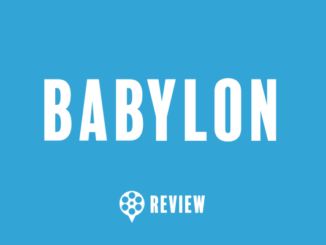This week, A Cure For Wellness got some much-needed attention when its marketing campaign promoting fake news in order to promote the film caught scrutiny on social media and beyond. The criticism got so harsh that 20th Century Fox, the studio behind the film, ended up issuing an apology which read:
“In raising awareness for our films, we do our best to push the boundaries of traditional marketing in order to creatively express our message to consumers. In this case, we got it wrong. The digital campaign was inappropriate on every level, especially given the trust we work to build every day with our consumers. We have reviewed our internal approval process and made appropriate changes to ensure that every part of a campaign is elevated to and vetted by management in order to avoid this type of mistake in the future. We sincerely apologize.”
The controversy surrounded about half a dozen websites created by backers of the film, under names like Sacramento Dispatch, Salt Lake City Guardian, Houston Leader, NY Morning Post, and Indianapolis Gazette — to post stories about purported news events, many of which involved President Trump.
Among the fictional tales designed as click-bait for readers: Trump secretly meeting with Vladimir Putin, Trump banning vaccinations, and Trump refusing to send aid to a California disaster area. There was no hint the stories were made up. Embedded in the pieces were suggestions that readers send objections about the purported actions, using hashtags like #ACureForWellness. That raised the specter of tricking consumers into repeating the A Cure for Wellness taglines, without knowing they were even connected to a film.
Before the story focused on their fake news promotion, the biggest story surrounding the film was that early reviews weren’t good and that it was going to have a lackluster box office weekend heading into the holiday. The ill-advised marketing campaign did spark some interest which had me thinking something. Do bizarre marketing campaigns actually generate interest that results in moviegoers flocking to the cinema? Years ago all you needed was a cool poster and a flashy trailer in order to get butt in the seats. Back in 1996, Independence Day only needed a money shot of a space ship blowing up the White House in order to make it one of the biggest blockbusters of all time. Nowadays I think studios believe we need more and sometimes it’s to cover up a subpar film (which seems to be the case with A Cure For Wellness) but in other cases it’s to tie in with the bigger picture the film is trying to sell.
Perhaps the start of unique viral marketing started with the release of The Blair Witch Project in 1999. Before Twitter, Facebook, YouTube or even Myspace, that film seemed to write the book on viral marketing and its approach went a long way to sell the reality of its concept.
The filmmakers and Artisan Entertainment supported the 1999 movie by releasing a trailer that made it seem like a documentary and they built a website that backed that claim and then began posting rumors on online forums and message boards. Perhaps because of my age at the time, I bought this as a film that was showing real footage of the final moments of this doomed documentary endeavor.
Perhaps age had nothing to do with it. I believe a lot of people thought this was real leading up to its release and that peaked interest enough to turn the film into one of the biggest independent films of all time when it grossed $248 million worldwide on a $60,000 budget. By the time the truth came out some may have felt duped but this particular marketing campaign is still regarded as one of the best in the industry and has been duplicated times over by other films.
Another example of non-traditional marketing can be how the pre-release promotion of Cloverfield was handled back in 2007. Before the film’s release, Paramount carried out a viral marketing campaign to promote the film which included viral tie-ins. The viral marketing campaign drew the attention of alternate reality game enthusiasts, hoping to uncover information of the film hidden online. Members of the forums at argn.com and unfiction.com investigated the background of the film, with the “1-18-08” section at Unfiction generating over 7,700 posts in August of 2007.
The promotion amped up with the mystery surrounding its first trailer. Filmmakers decided to create a teaser trailer that would be a surprise in the light of commonplace media saturation, which they put together during the preparation stage of the production process. The teaser was then used as a basis for the film itself. Paramount Pictures encouraged the teaser to be released without a title attached, and the Motion Picture Association of America approved the move. At the time Transformers showed high tracking numbers before its release in July 2007 which led to the studio attaching the teaser trailer for Cloverfield that showed the release date of January 18, 2008, but not the title.
The move proved to be a wise one. I remember seeing Transformers on opening night and when the movie let out all we could talk about was that mysterious trailer that didn’t give away much except for some New York destruction which led to the beheading of the Statue of Liberty. From there we tried to find out anything we could about the film but the studio was on top of keeping things as secretive as they could before its release in January of 2008.




